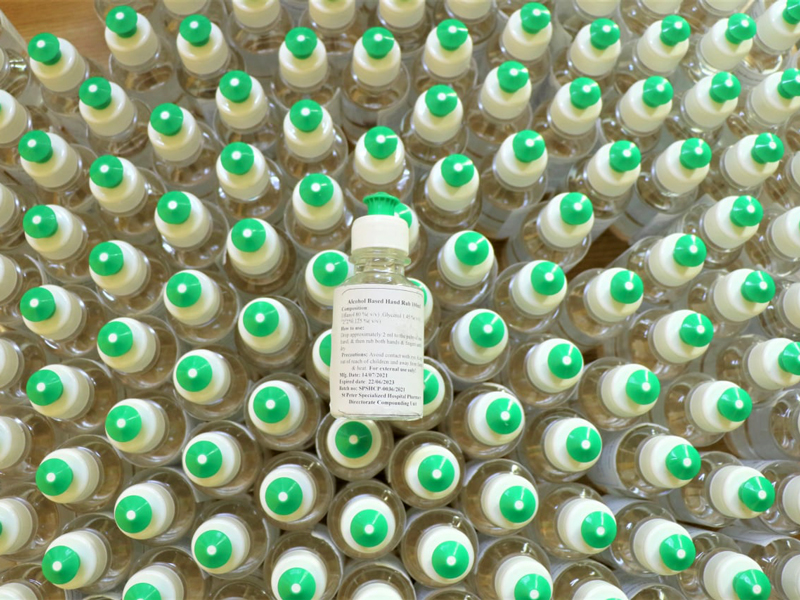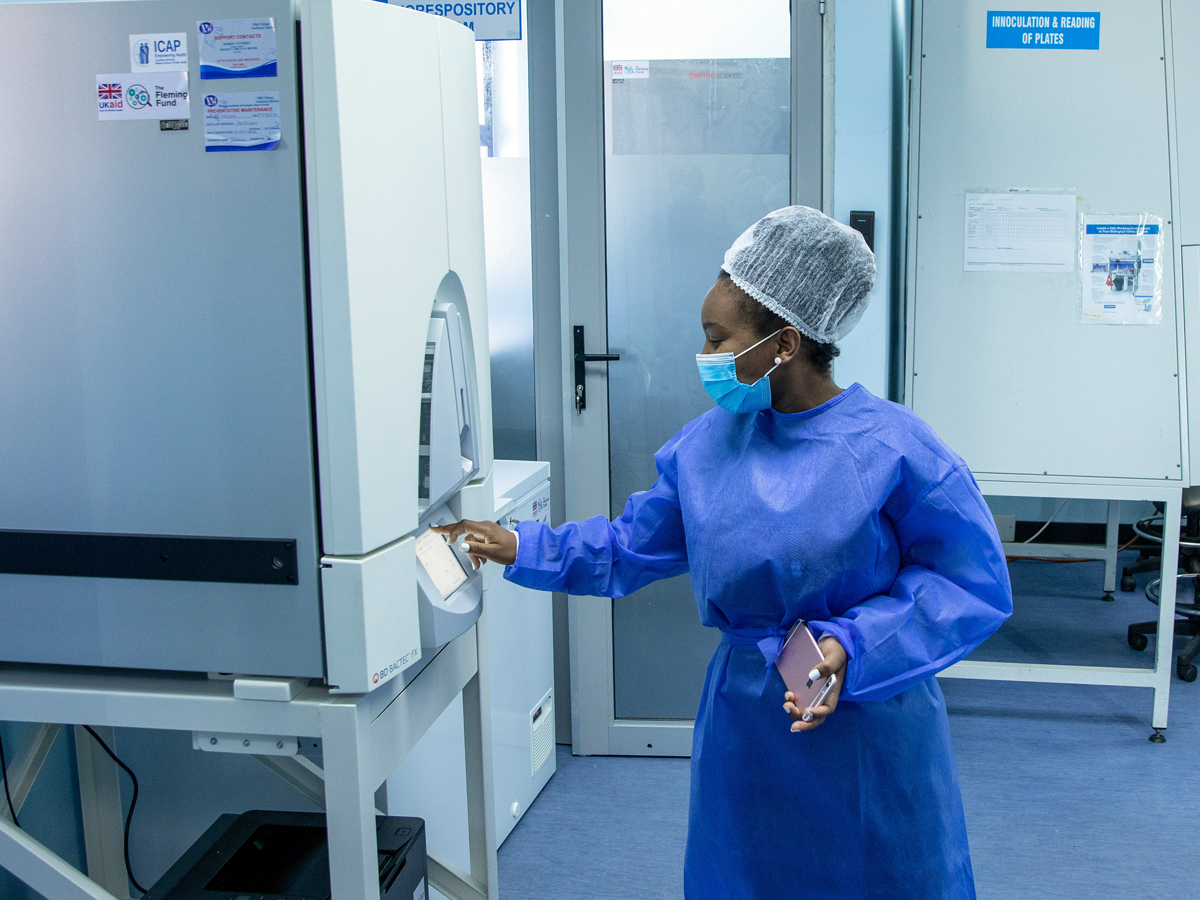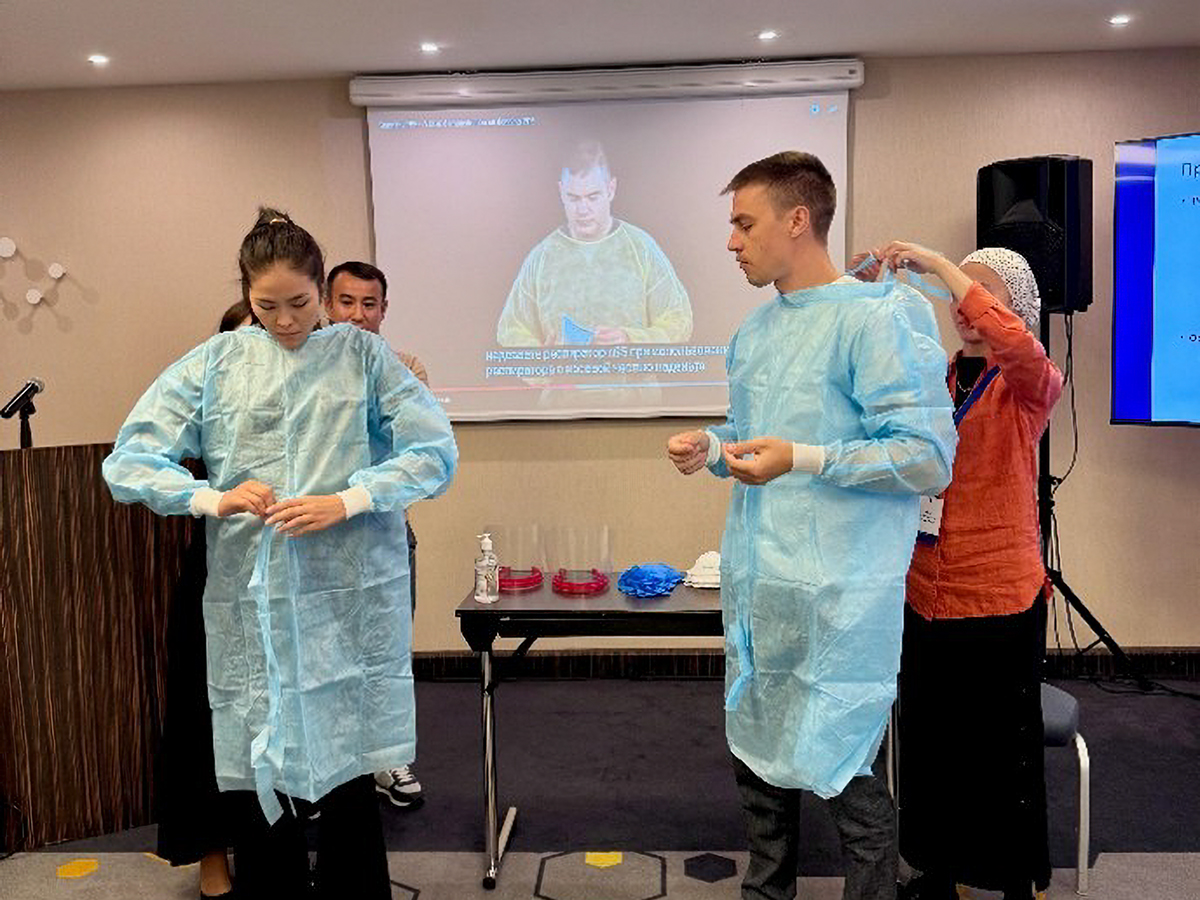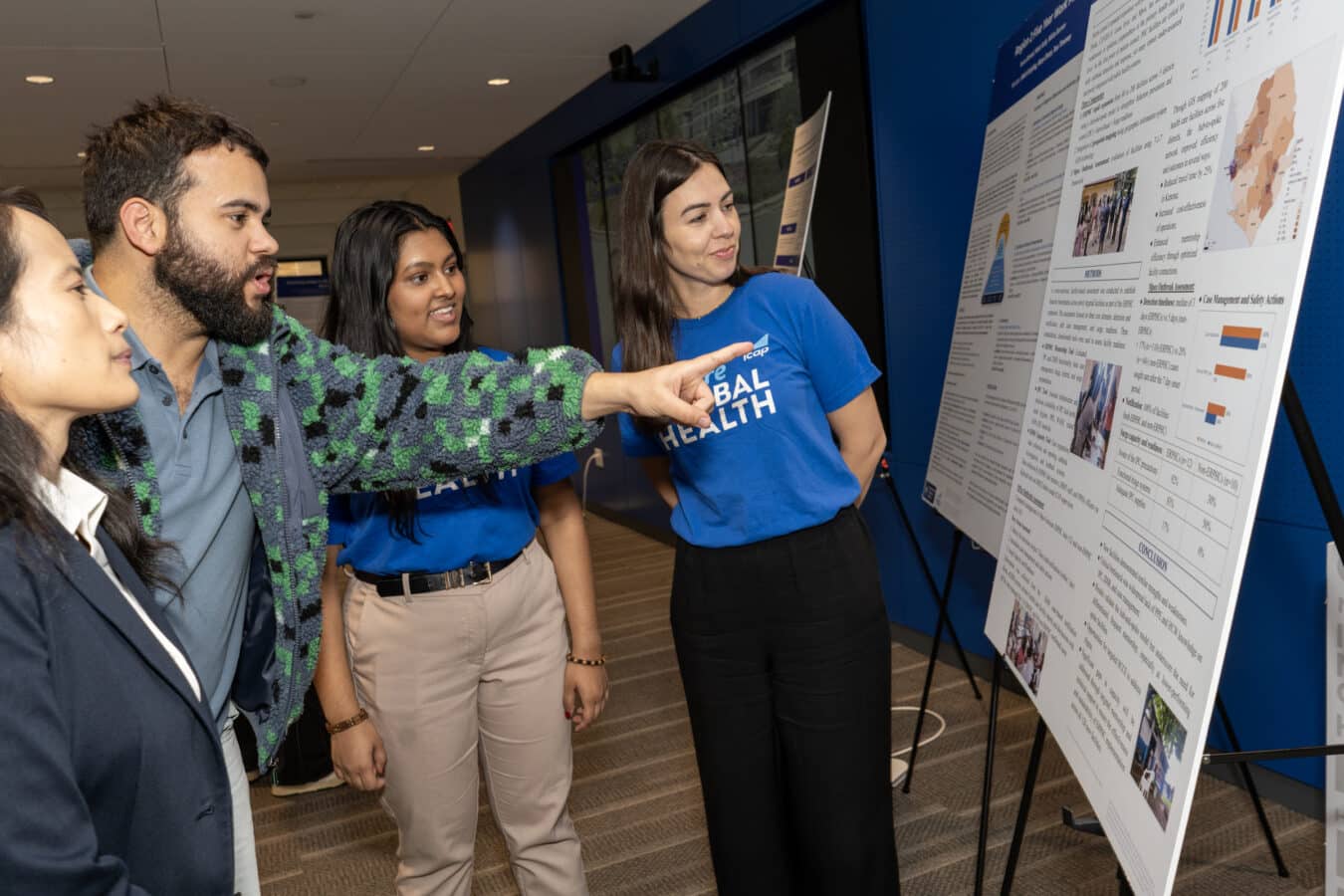High-Level CDC Foundation Team Visits ICAP-Supported IPC Facilities in Ethiopia related to COVID-19 Screening, Monitoring, Isolation and Cohorting (COSMIC) Project
In March 2020, Ethiopia reported its first COVID-19 case signaling the emerging threats to Ethiopia’s health system from the COVID-19 pandemic. Following this report, the country introduced a series of multisectoral interventions targeting the prevention, control, and containment of the spread of the infection to different regions of the country, as well as interventions to mitigate the social and economic consequences of the disease.
With the emergence of cases of COVID-19 in Ethiopia, ICAP responded quickly by supporting the Ministry of Health (MoH) in contextualizing and implementing interim guidance issued by the United States Centers for Disease Control and Prevention (CDC). This aimed at ensuring uninterrupted service provision for people living with HIV (PLHIV) and reducing the risk of transmission of the virus among HIV care and treatment service recipients.
Based on the guidance, ICAP assisted the national and regional programs to prevent disruption and maintain the continuation of HIV services across all PEPFAR supported sites while protecting PLHIV and service providers from contracting COVID-19 disease. In addition, CDC and ICAP jointly initiated critically needed IPC support at the MOH, Regional Health Bureaus (RHBs), and health facilities to address immediate needs to prevent nosocomial spread of COVID-19 and build IPC program capacity.
With funding from CDC Foundation. ICAP implemented COVID-19 Screening, Monitoring, Isolation and Cohorting (COSMIC) Project in 27 facilities in Ethiopia. Through the COSMIC project, ICAP provided capacity building and technical support at national, regional, and health facility levels for improved IPC programs to prevent the transmission of COVID19 and other health care-associated infections (HAIs) in the country.
The project support includes source control screening and triaging for clients; screening and monitoring of health care workers; inpatient isolation; and cohorting. ICAP introduced targeted capacity-building activities for health care providers, health care managers, and ancillary staff. ICAP also assisted facilities in the design of patient flow systems, infrastructure upgrading, development of IPC related facility-level guidance documents and protocols, and introduced reporting forms, and monitoring and evaluation, data visualization and mentorship tools, and provided regular intensive site-level mentorship and support.
From November 14 to 16, 2022, Turquoise Sidibe, vice president for emergency response and Ramot Adeboyejo, MPH, technical officer for emergency response at CDC Foundation paid a visit to ICAP-supported IPC facilities in Addis Ababa, Ethiopia. The team visited the source control screening and triaging, health care workers screening, and monitoring areas at St. Peter Specialized Hospital, Princess Zewditu Memorial Hospital, Yekatit 12 Hospital and Saris Health Center. The visiting team observed the facility-level COVID-19 IPC interventions implemented by ICAP in Ethiopia with funding from the CDC Foundation.
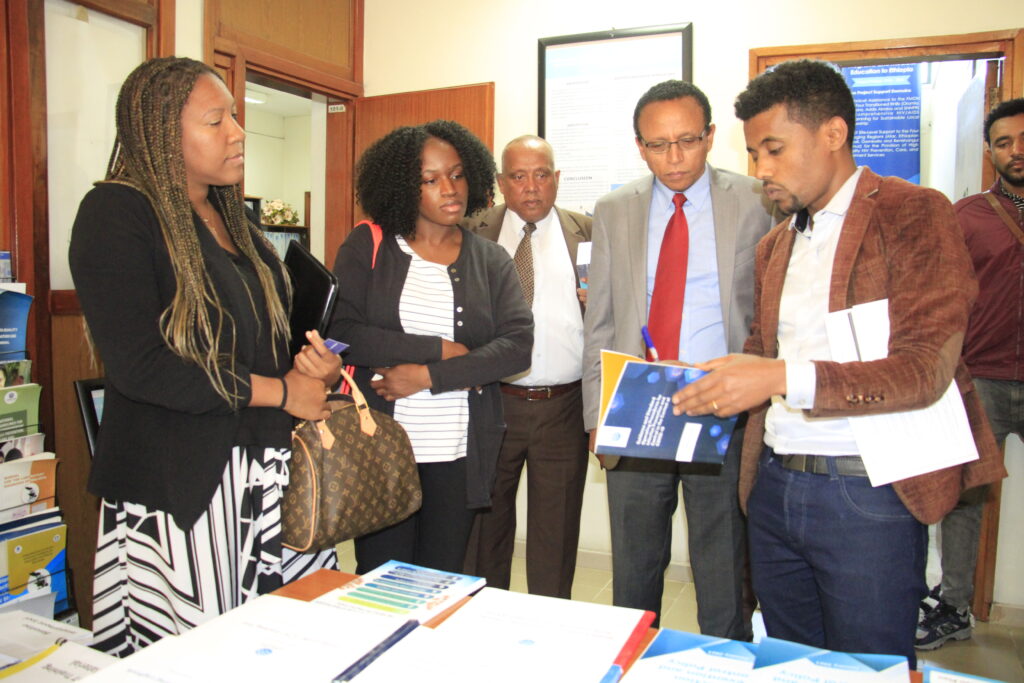
Zenebe Melaku, ICAP’s country director in Ethiopia (third from right) meets with representatives of the CDC Foundation to review IPC improvements and health facilities in Addis Ababa
During the surge of COVID-19 in Ethiopia in December 2020, St. Peter Specialized Hospital was one of the first of COVID-19 treatment facilities in Addis Ababa providing treatment to patients. Despite having more than 1,500 daily client visits and over six million population served in its catchment area, the hospital didn’t have any IPC guidelines. It lacked IPC trained health care workers, a dedicated space, and essential IPC supplies that could be used for source control screening. The hospital neither had source control screening facility nor supplies while mandated to exclusively provide treatment for COVID-19 patients,” said Tsegaye Atsimuye, MD, IPC program director at the hospital.
During their visit, the CDC Foundation delegates witnessed that, as a result of the COSMIC project, there was much improvement in IPC-related services. Source control screening and triage (SCST) has been established as a routine practice for incoming patients and health care workers (HCWs). The SCST service is now being provided in a permanent well-structured space.
“We have observed many success stories during our visit to Ethiopia around the COSMIC project. The achievements are tremendous in terms of strengthening the health system readiness for emerging and reemerging pandemics,” said Ramot Adeboyejo.
CDC Foundation’s support has catalyzed the standardization of IPC services related to COVID-19 in selected hospitals in Addis Ababa. “Additionally, within the selected hospitals, we saw how commodities purchased with our funding were used to create a safer entry and flow for health care workers and patients visiting the facilities. We were also able to see how our funding support led to innovative and evidence-based solutions to help hospitals and clinics reduce the spread of COVID-19 and other infectious diseases within the facilities,” Ramot Adeboyejo said.
“Before ICAP’s intervention and support, our facility used to screen patients and visitors for COVID-19 in a tent. Now, we are using a well-structured booth made of aluminum for source-control screening and triaging of patients. We are conducting further clinical assessment for suspected patients identified at the SCST unit,” Dr. Tsegaye informed the visiting team.
The visiting observers also toured Yekatit-12 hospital, a century-old facility situated at the heart of Addis Ababa, which provides general and specialized medical services to over 3.5 million people in its catchment area. This facility hosts an average of 891 patients every day. According to Elias Tewabe, MD, medical director of the hospital, there was a gap in IPC practices. Handwashing facilities were located far away from the main gate. The hospital lacked a designated COVID-19 screening space, IPC supplies, and trained health care professionals who could provide COVID-19 IPC services.
“These realities have now changed in our routine IPC practice thanks to ICAP’s initiative and intensive support,” Dr. Elias Tewabe stated. “The supplies needed to perform screening for patients and the staff were made available through this support.”
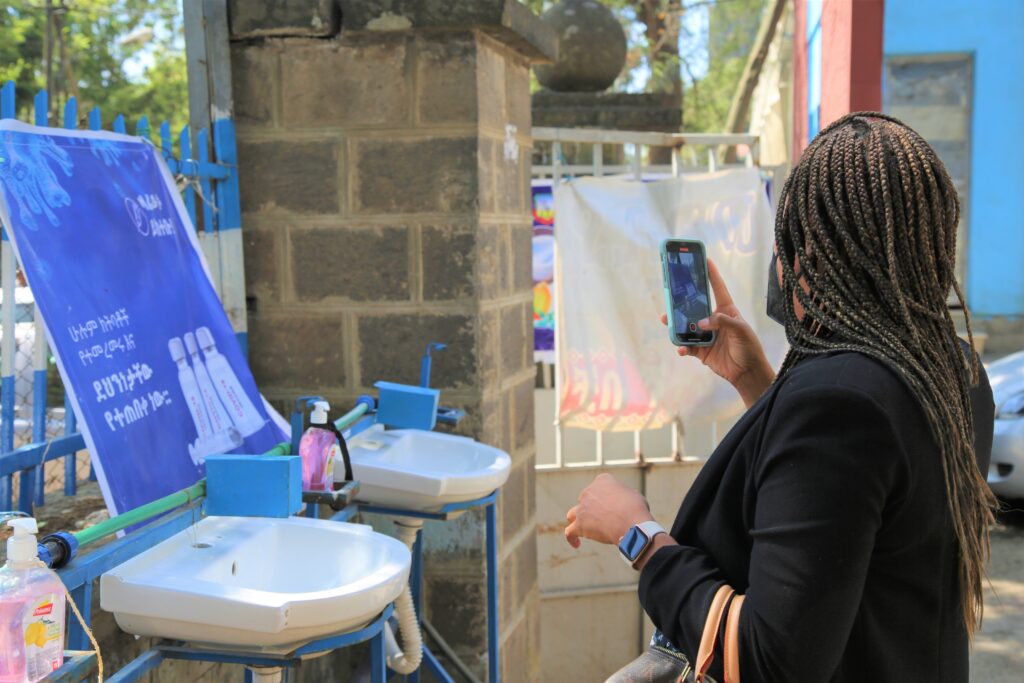
The booth that is now used for screening of patients and the staff has a well-equipped screening station, a respiratory waiting room, and a functioning clinical evaluation unit. The clients enter the facility in a separate gate that takes them straight to the hand-washing station and screening unit. The staff enter through a separate gate and access the hand-washing facility directly.
Sr. Meaza Assefa, IPC focal in Saris Health Center, resonated with what was expressed by the visiting team, saying, “The support we have received from ICAP has immensely contributed to strengthening the source-control screening process, which is a critical step for early identification of COVID-19, tuberculosis, and other respiratory infections. In addition, the upgraded structure has enabled us to provide uninterrupted source control screening service consistently.”
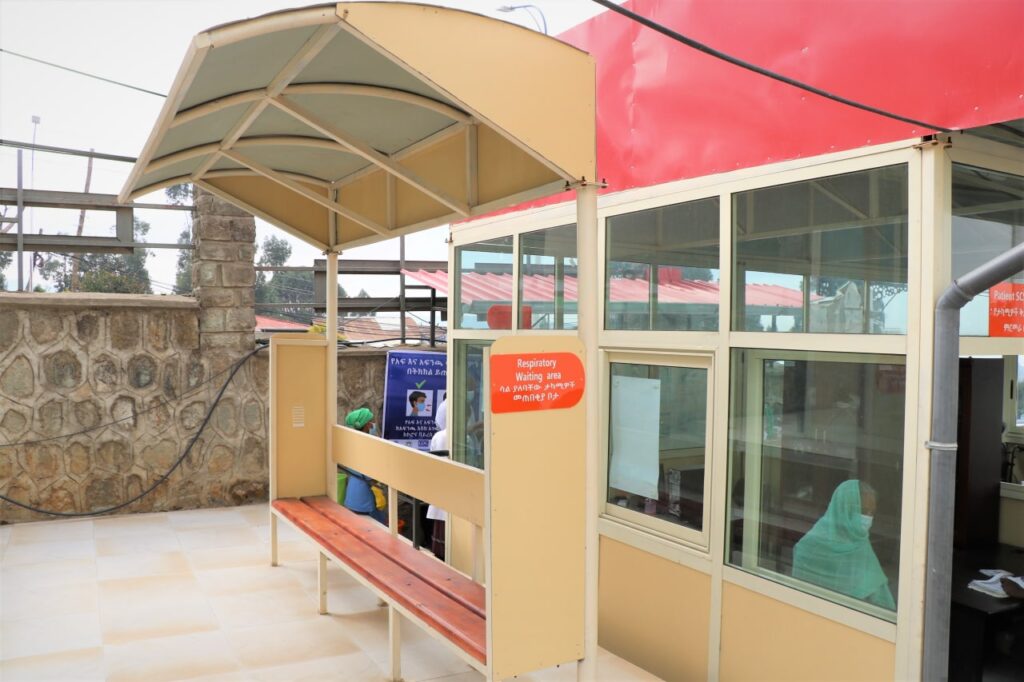
“CDCF funds have unequivocally helped the country to create a unified and standardized guidance on IPC and have paved the way for the long march towards achieving the goal of safe health care environment,” said Berhanu Tekle, MD, MPH, senior quality improvement advisor and IPC lead at ICAP in Ethiopia.
“Leadership’s engagement at the facility level is proven to be very critical to the success of IPC programs as has been attested by the best performing health facilities visited by the CDC Foundation team,” Zenebe Melaku, MD, ICAP’s country director in Ethiopia stated.
“We are incredibly grateful to ICAP in Ethiopia for effectively bringing together partners from across multiple sectors to achieve a common goal of improving IPC in health care facilities in Ethiopia, Ramot Adeboyejo remarked. “The passion and commitment ICAP in Ethiopia has demonstrated has been evident and well-reflected by the success achieved through the project.”
About ICAP
A major global health organization that has been improving public health in countries around the world for nearly two decades, ICAP works to transform the health of populations through innovation, science, and global collaboration. Based at Columbia Mailman School of Public Health, ICAP has projects in more than 40 countries, working side-by-side with ministries of health and local governmental, non-governmental, academic, and community partners to confront some of the world’s greatest health challenges. Through evidence-informed programs, meaningful research, tailored technical assistance, effective training and education programs, and rigorous surveillance to measure and evaluate the impact of public health interventions, ICAP aims to realize a global vision of healthy people, empowered communities, and thriving societies. Online at icap.columbia.edu


